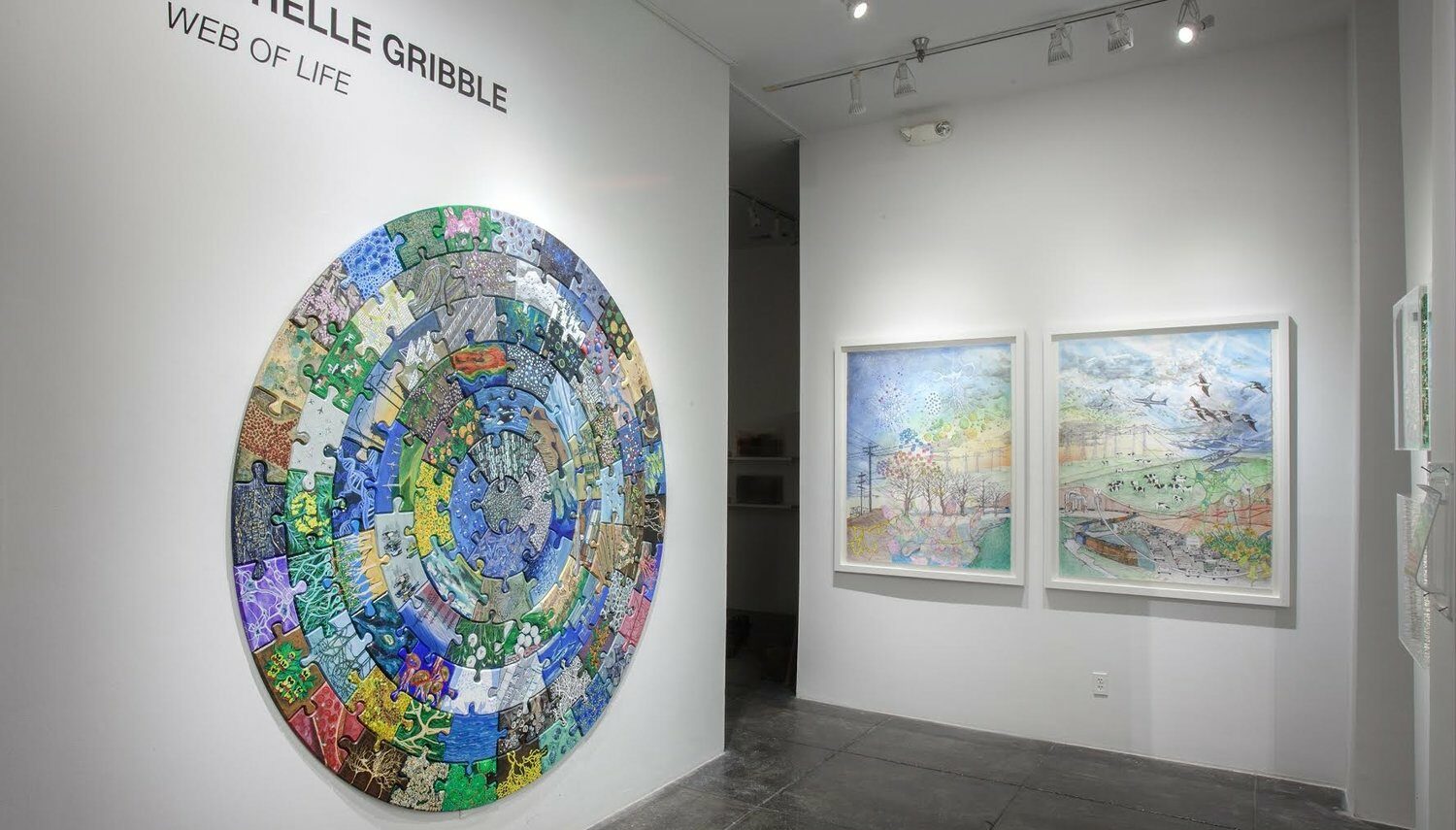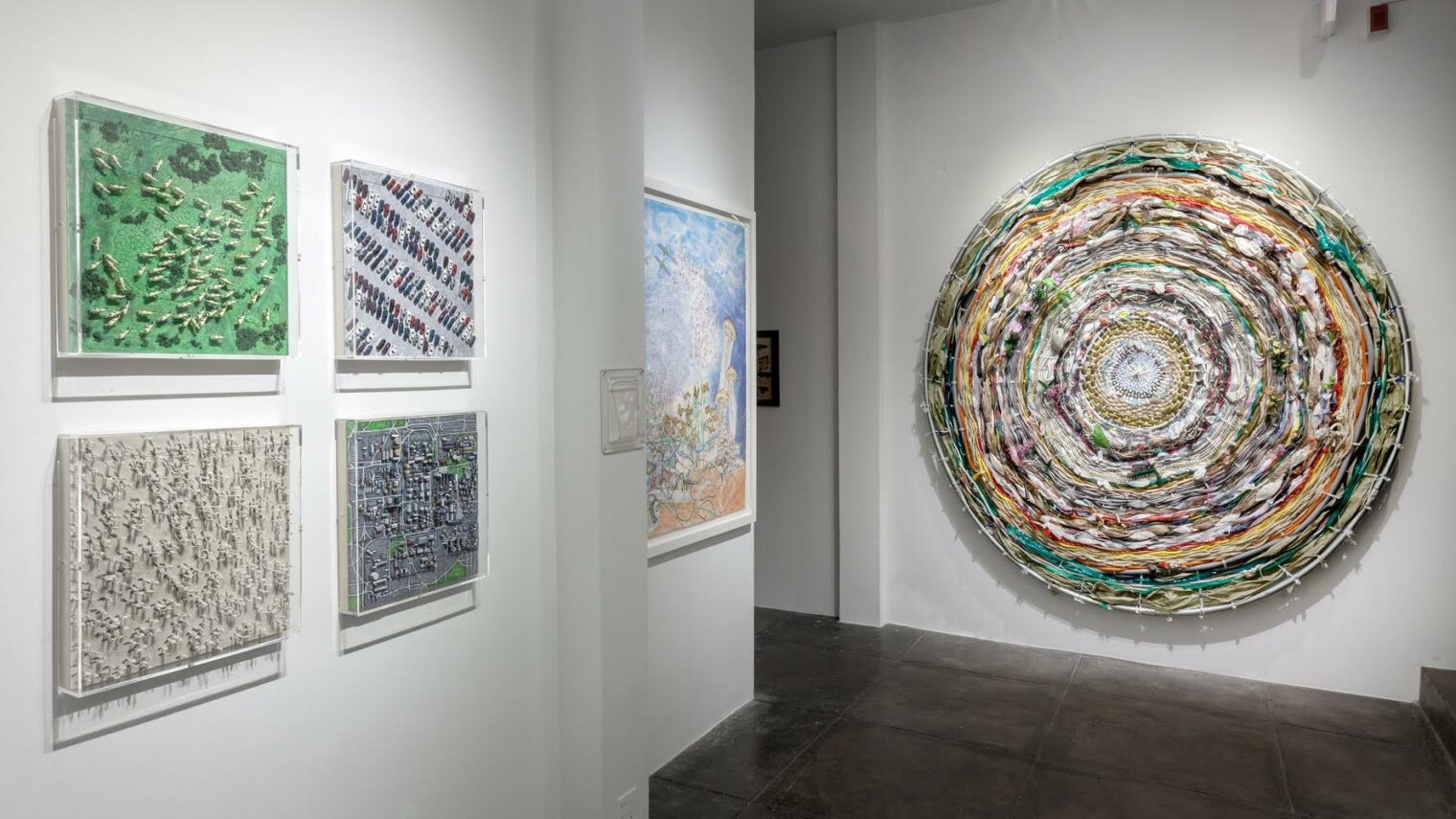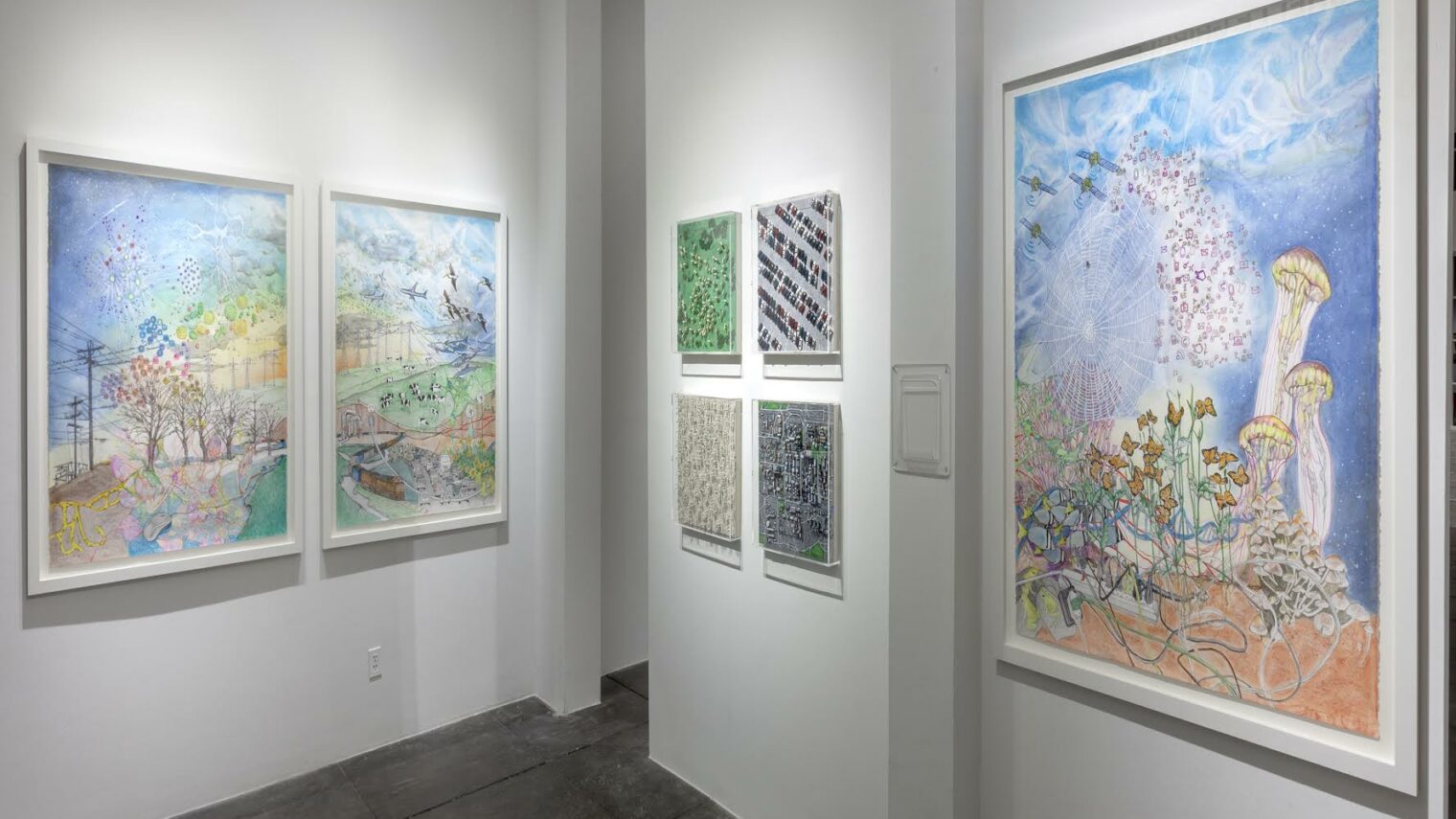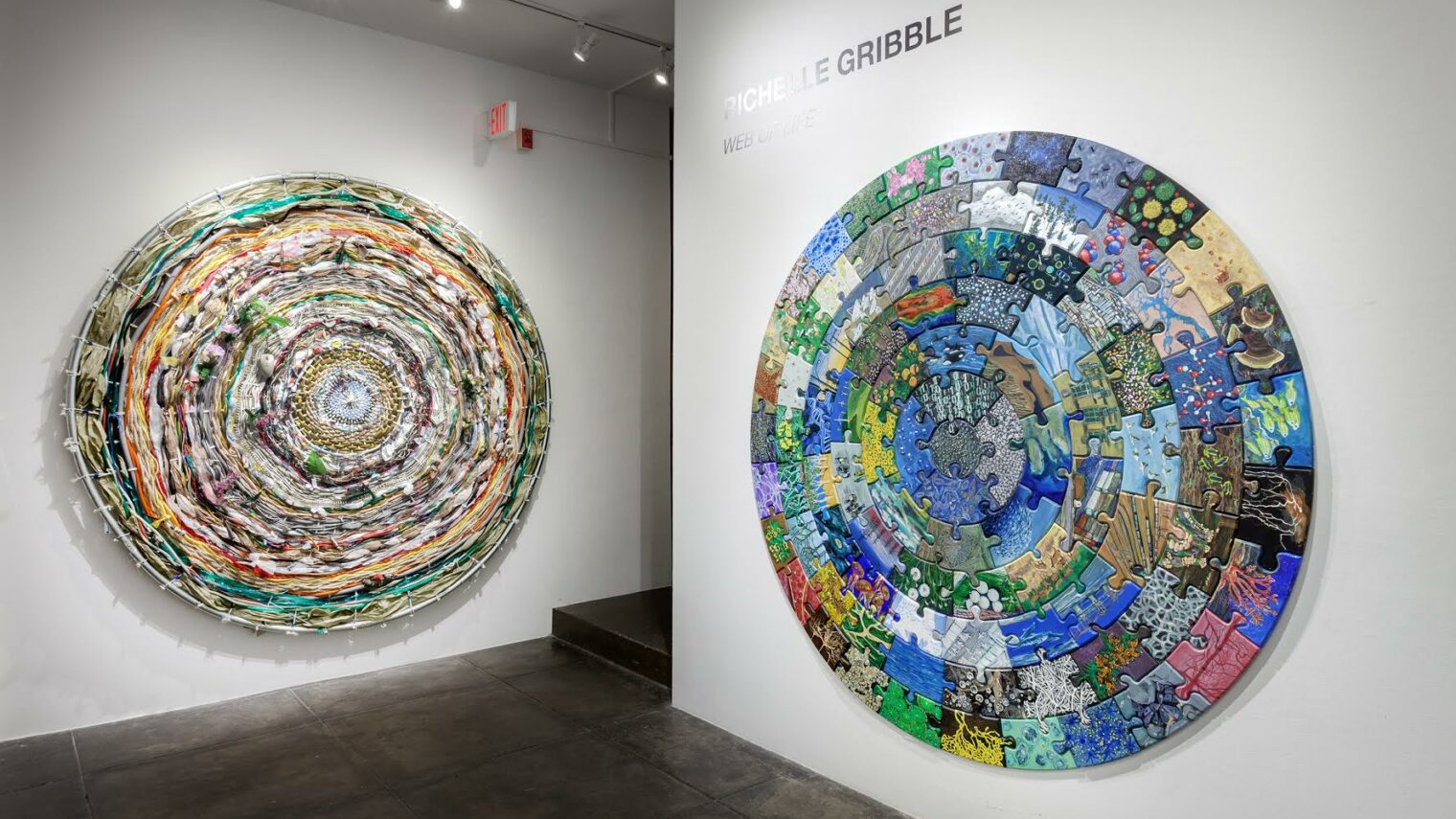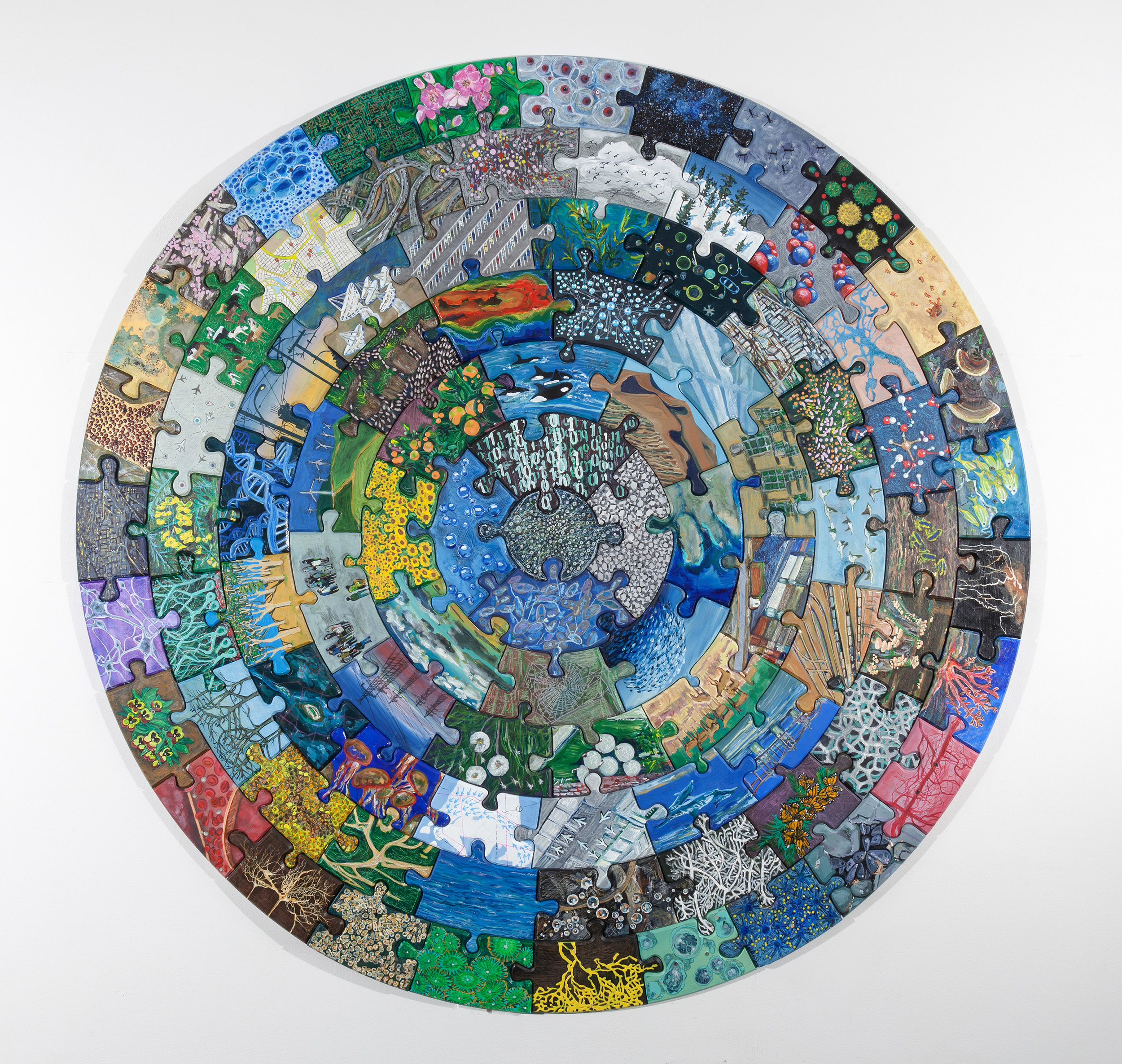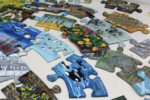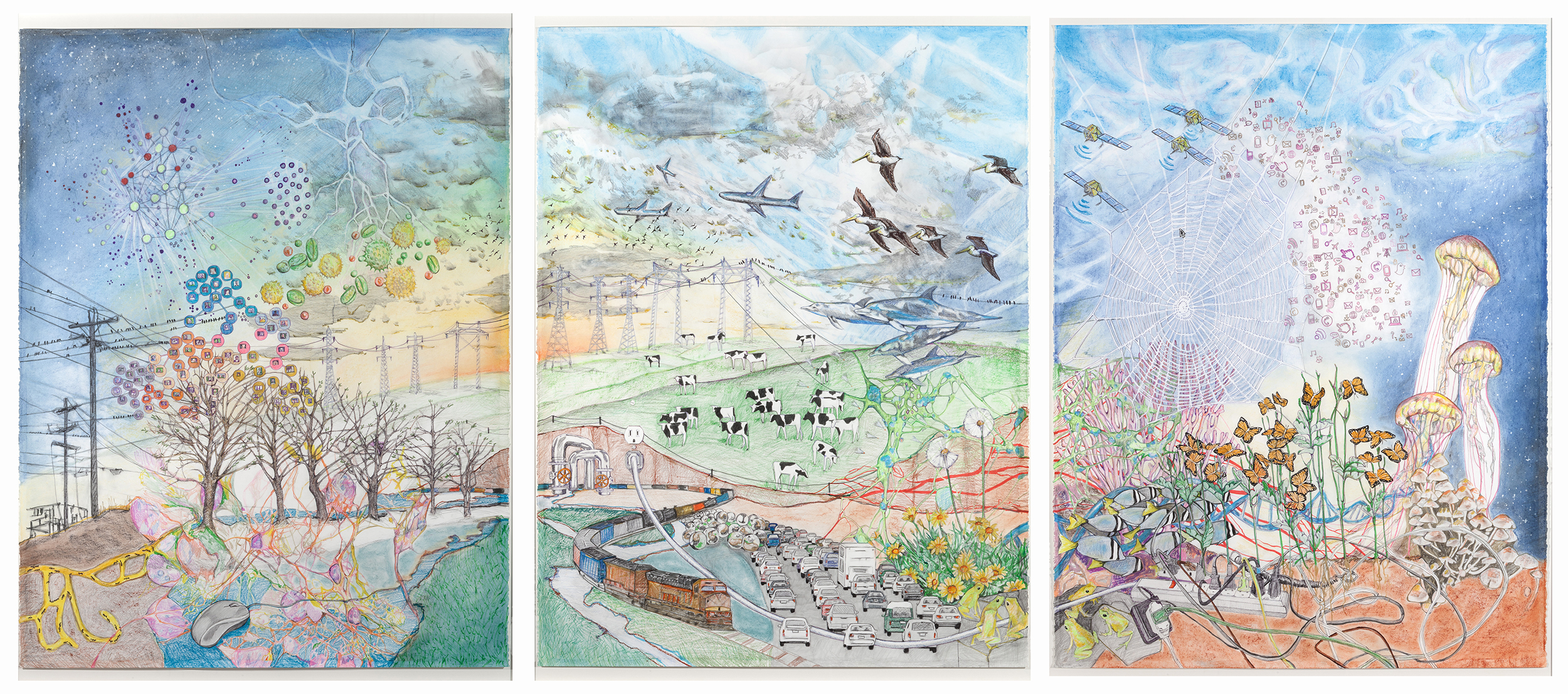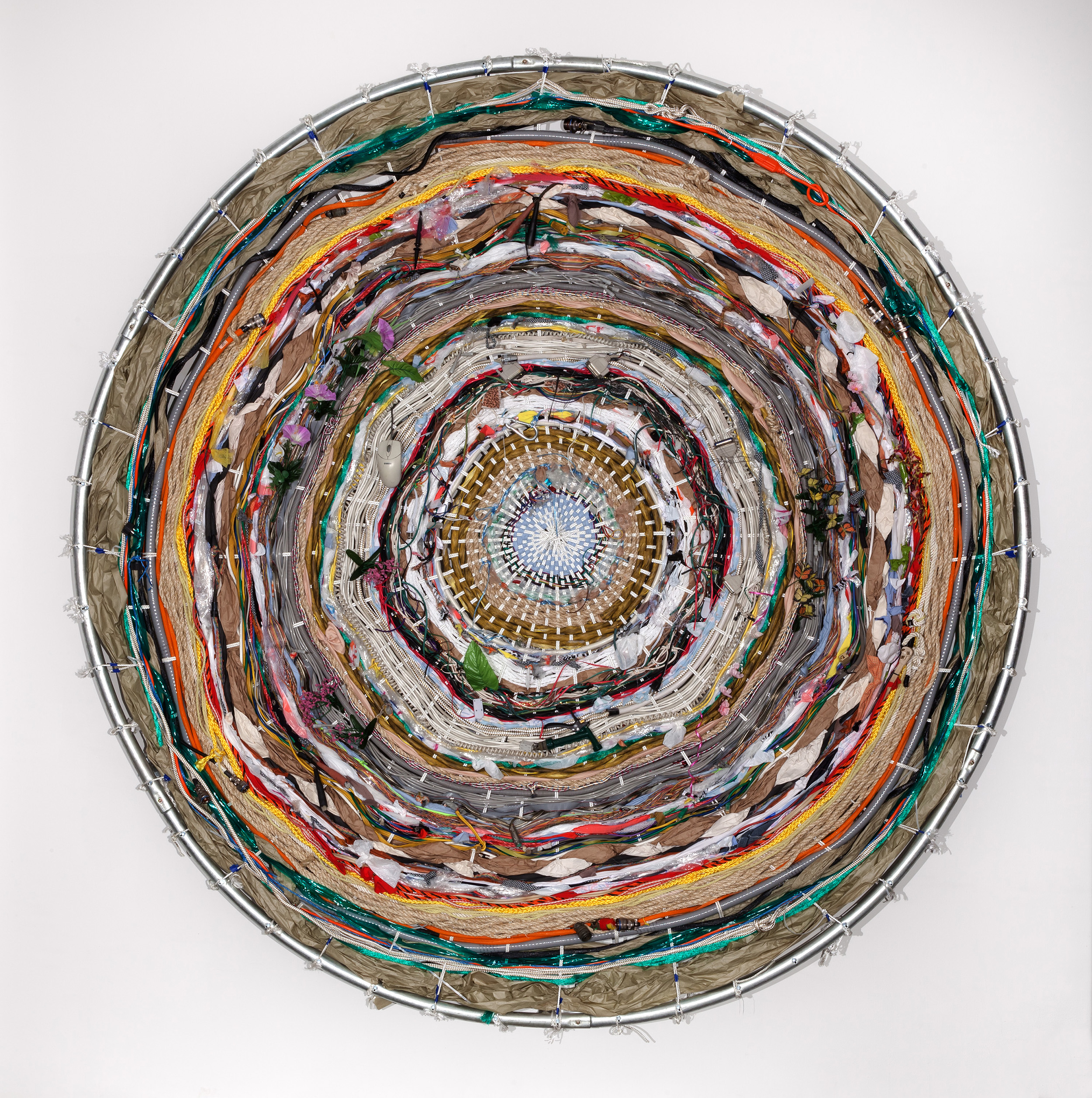“Gribble finds no end of poetic wonder in the chaos of the behavioral networks of microbiology and collective sociology that she renders in sharp detail in her attempt to answer the question: ‘how does connectivity influence our lives and our future?”
— D. Eric Bookhardt, critic for Gambit Weekly, New Orleans, LA
Web of Life
We undergo a paradigm shift in the 21st century, so we should consider it time to pledge a Declaration of Interdependence. Shifting from the Newtonian paradigm of “mechanistic thinking” which views humans and the environment as separate parts functioning in machine-like isolation, we can begin to see things from a holistic perspective that is interrelated and connected. Instead of learning about the world through reductive processes, we’ve realized that certain crucial details are left out when disregarding pluralistic views of systems. Rather than reduce learning about our world through dissection, subtraction, and isolation, what happens when we add everything up?
A new approach to problem solving is called “systems thinking,” which considers the relationships of many affecting and comprising a complete entity or larger system. In other words, all self-regulating entities contain systems nesting within systems, and this realization is becoming increasingly more evident through growing mobility, modern technology, and economic globalization, enabling us to transcend national and cultural boundaries. Today, we are capable of viewing our world from a complex range of perspectives as close as the subatomic level to as far as 13.8 billion years into our visible Universe. We can create algorithms to detect these interconnected systems from the computers in our pockets to the droughts in our yards.
There is an invisible, geometric lace that drapes over our planet, linking organisms, social systems, and ecosystems together. Each thread serves as a bridge to move resources and information, enabling survival and sustainability of all parts of the whole. By recognizing patterns that occur across interdisciplinary systems, we can predict and preserve the outcome of imbalanced or disrupted systems. Providing big-picture perspectives creates opportunities for compassion, empathy, and unity to spread, through which positive social contagion guides movements and change. This network of systems is our ever-evolving Web of Life.
Download: Press Release
